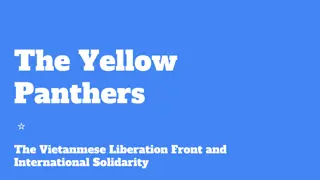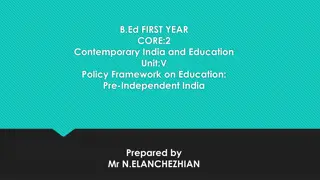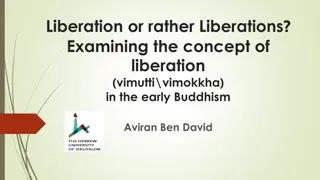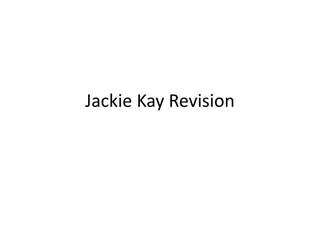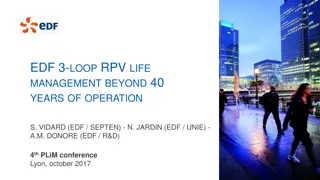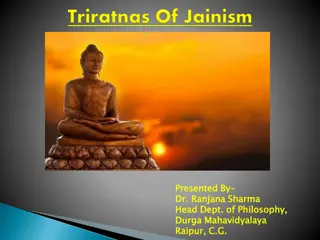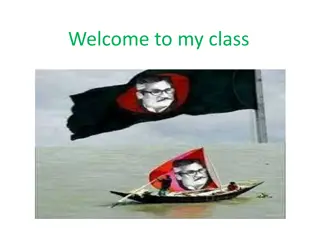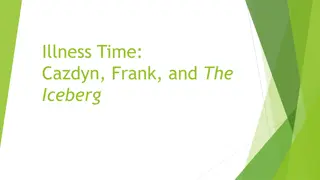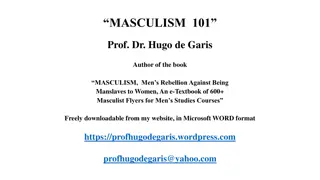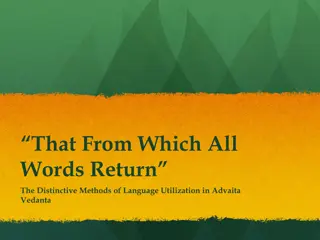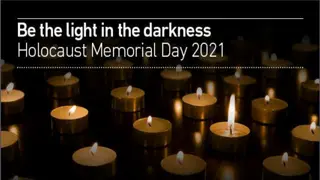
Concept of Conscientization and Liberation in Education for Liberation
Explore the profound concept of conscientization and liberation in education as established by Paulo Freire. Discover how education can either perpetuate conformity to the existing system or empower individuals to critically engage with reality and transform their world through conscientization and liberation processes.
Download Presentation

Please find below an Image/Link to download the presentation.
The content on the website is provided AS IS for your information and personal use only. It may not be sold, licensed, or shared on other websites without obtaining consent from the author. If you encounter any issues during the download, it is possible that the publisher has removed the file from their server.
You are allowed to download the files provided on this website for personal or commercial use, subject to the condition that they are used lawfully. All files are the property of their respective owners.
The content on the website is provided AS IS for your information and personal use only. It may not be sold, licensed, or shared on other websites without obtaining consent from the author.
E N D
Presentation Transcript
EDUCATION FOR LIBERATION The Concept of Conscientization and Liberation
The Concept of Conscientization and Liberation Paul Freire is the founder of education for liberation He examined the capitalist society and discovered that there is no such thing as neutral education. Education either functions as an instrument which is used to facilitate the integration of generations into the logic of the present system and bring about conformity to it, or it becomes the practice of freedom where people deal critically with reality and discover how to transform their world
The Concept of Conscientization and Liberation Liberation is viewed as an act and process that takes place at the level of an individual and the society at large in circumstances of setting oneself free from oppression. Thus, liberation and conscientization are closely related and are in many ways inseparable. Conscientization (conscientizacao in Portuguese) means consciousness raising; i.e raising an awareness to new levels of perception of reality.
Conscientization It means making people conscious of the reality about themselves and their circumstances, their humanity, their ability as conscious beings in controlling their environment, nature, and confronting even overpowering oppressive elements in the process of their own development. Conscientization is a dynamic process that involves a transformative series of two action-prone sub- processes: transforming
Conscientization awakening of consciousness or change of attitude associated with commitment to action that is geared towards transforming the existing unhappy social economic conditions and the associated oppressive circumstances. Three types of consciousness are clarified by Paulo Freire:
Conscientization Magic consciousness; in which man understands facts and problems but, on account of his inability to explain them, attributes their existence to some superior power. This kind of consciousness, operates at the first two levels; empirical and intellectual producing a magic response which is characterized by fatalism and resignation to the situation.
Conscientization Naive consciousness; Is the second type of consciousness which operates at the higher level, it is intellectual and rational, at this level, man comprehend facts and problems and assumes that he is able to control them. But his understanding of the situation tends to be academic, abstract and isolated from reality. Accordingly, more of this type of consciousness results into a naive characterized by idealistic imaginations and assumptions response; which is
Conscientization Critical consciousness Is the third type of consciousness when man tries to judge the situation realistically by analyzing facts and problems in the light of fundamental human values. It leads to concrete response as it is rational and critical in orientation. It leads to Praxis which is both reflection and practice. This concept combines theory and practice as a penetrating process of knowing and doing.
Conscientization This involves transforming human being from mere objects to subjects . It occurs through educational experiences that involve the educator and the educatee in a simultaneous process of uncovering the reality and acting on it. Therefore essence of education lies in its potential for liberating the individual
Liberation Freire (1970) education is for liberation and according to Nyerere (1974), liberating education should be one that is designed to help people become critical, active, free and responsible members of society. Not education offered to maintain the status quo by imposing on the people the values and culture of the dominant class. Therefore, the liberating task of education commences with conscientization which may be seen as one of the stages or forms of liberation.
Liberation. Liberation entails fundamental changes in both attitude and skills towards a state of freedom. The concept entails not only the state of being or achievement (i.e freedom), but also to a process towards such a state, as well as to an extent, the measure or manner of the process towards such an end. A man can be free physically but if his mind is still restricted by habits and attitudes that limits his humanity he is not liberated
Liberation. Freedom at both physical and mental level is termed total liberation. Total liberation at the level of the individual as well as of society. means physical and mental liberation that ultimately leads to development. Yet man can not develop in isolation according to Nyerere. Liberated society can only be formed from the unison of liberated individuals. This means individuals may not survive without society just as society will not survive alone without individuals who make it.
Liberation. The other dimension of mental liberation is the acquisition of knowledge and skills which enables man to control nature and his environment for his own development. He should be able to control environment without being controlled by it or without destroying it. The ideas and skills man acquires should release him from limitations of ignorance and dependency. But liberation of an individual is not complete if he can not relate it with his fellow human being in the society
Liberation. At a society (or national level) level, liberation means freedom from foreign occupation along with freedom from economic and cultural dependency. A nation that is free can then develop itself in cooperation with other nations as a free and equal member of the world community. This is only possible through education.
Education for liberation Is the education which makes man more of a human being because of becoming aware of his potentials so that he can be in positive life- enhancing relationship with himself, his neighbor and his environment (Nyerere, 1982). This means education for liberation should also be education for development. Liberation or development is of man for man by man. This is by considering the truth that:
Education for liberation. Development brings freedom, provided it is freedom of people, but people can not be developed; they can only develop themselves. This means development is a result of developing knowledge and skills for acquiring what you want to achieve. I.e a man develops himself when he improves his education. For instance, he knows how to grow or earn enough to provide decent condition for himself and his family
Education for liberation. he is developed if he carries out orders after knowing why he is doing so and he participates in free discussions and subsequent decisions on issues concerning his life. Note that not every kind of education has a liberating potential, even if the education does, the mode of delivery also determines the liberation potential.
Education for Domestication Freire describes education that is founded on reproducing the existing economic order domestication . In education for domestication , the learner is conditioned into a oppressive relations subordination. political education and for as structure of based on or domination
Education for Domestication For example; Teachers are dominant over learners; there a few learners through competition, attain dominance over all the others academic, not only dominates but excludes the possibility of creating new knowledge and theory Education, which domesticates aims to deny people the right to name their world . Freire refers to this process as the banking concept of education
Education for Domestication He describes it as follows: Education thus becomes the act of depositing, in which students are the depositories and the teacher the depositor. Instead of communicating, the teacher uses authority and makes deposits, which the students patiently receive, memorize and repeat.
Education for Domestication For example; Teachers are dominant over learners; there a few learners through competition, attain dominance over all the others academic, not only dominates but excludes the possibility of creating new knowledge and theory
Education for Domestication The banking concept of education helps to sustain already existing knowledge, which in turn manufactures consent to the capitalist system. In capitalist nations poverty is the fault of the individual and that the rich are rich because they have special talents which make them entrepreneurs. In the current social order, education functions to stifle critical and creative political thought and aims to adjust minds to the conformities of a mass society.
Education for liberation Problem posing education affirms men and women as beings in the process of becoming; i.e as unfinished, uncompleted beings in and within a likewise unfinished reality . For example, Nyerere s idea on adult education aimed at shaking of the three enemies of development; diseases, ignorance and poverty. Also to help people to work out their own kind of self-conceived problem solving strategies so as to realize personal and communal sense of victory and accomplishment. This would lead to freedom from the constants of nature, dependency and exploitation.
Education for liberation A liberating education process should starts with clear understanding the individual one wishes to educate together with his total environment; i.e. considering his social and cultural contexts. Education should focus at giving freedom to individual and the society through conscientizition process.
Education for liberation I.e. education should be a problem-posing enterprise pursued in a common search for solution to problem surrounding both the teacher and the learner. In this case all participants are presumed to be creative, with capacity to contribute towards solving the problems and enhancing their environment. The role of the teacher is to assist the participants to identify problems, to find the root cause of those problems and to act on those problems,
Education for liberation Dialogue gives to each individual in the classroom an opportunity to express his/her own views to question assumptions and even to challenge authority from which knowledge emanates. Dialogue begins with the experiences of learners. Our experiences shape the way we think about the world. Experience is the key starting point in education for socialism
Education for liberation Experiential learning means investigating our thinking and asking why we think the way we do. This inevitably leads to the decoding of ideology and the beginning of understanding our relationship with wider social structures. Dialogue requires a co-equal relationship between teacher and student, in which knowledge is not a commodity to be passed down but is something to be investigated
Education for liberation Central to dialogical education is the transformation of teacher-student relations and the way we think about knowledge. The teacher-learner relationship is horizontal both of them learning from each other while the two parties interact also with the subject matter as the third party
Education for liberation Education involving classroom teaching and learning, self study in research, field or in library or any other means should enhance reflection and action (praxis). Education should not only reflect upon the world but also to take advantage of the reflection in order to change the world. Education increase their capacity to transform their lives, their environment, their community and their society.
Education for liberation African countries fail to follow this system of education because of the inherent political system that historically emanate from colonialism people have reduced themselves to an object dragged along by history as they can not make history. These people are oppressed by their own political structures, their own sense of resignation and their own limited powers of creativity, hence they think that every thing is pre-determined and can not be changed.
Education for liberation Therefore in the context of training literacy for adults for instance; should not only promote reading, writing and numeric skills but should also become a vehicle by which the oppressed are equipped with the necessary tools to create their history, their culture and their whole social context.




